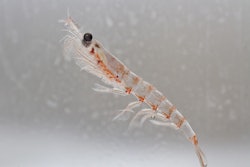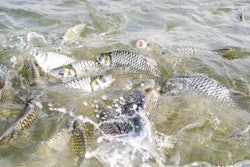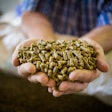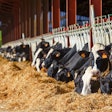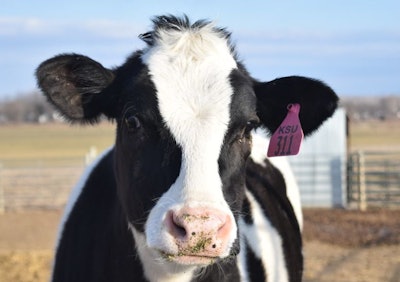
Precision feeding comes with myriad economic and environmental benefits, but for dairies looking to reduce their methane emissions, a new study suggests it might also come with an unexpected challenge.
Manure from cattle precision-fed in a trial by the Catalan Institution for Research and Advanced Studies (ICREA) produced 55% more methane and 15% more carbon dioxide than those fed more uniform diets, according to the study. However, the precision-fed cows excreted less ammonia and consumed about 30% less protein, potentially cutting costs for producers.
Precision feeding is not difficult to implement at dairies, and in some cases the practice is already in use, said Alex Bach, an ICREA research professor and one of the authors on the study. Since dairy cows must already come into a barn to be milked by robotic milkers that automatically ID and track the cows, precision feeding is simply a matter of providing individualized nutrition in the same setting. It also comes with potentially significant gains, since the nutritional and especially protein demands of diary cows can vary significantly between individual animals depending on their current milk production.
Nitrogen is a structural component of protein, and one of the biggest problems with cows is they “waste” and excrete some 70% of the nitrogen they consume, Bach said. So tailoring the protein content of diets to the needs of specific cows should reduce releases of nitrogen and related compounds such as ammonia.
Protein is also one of the most expensive components of the cows’ diets, so a precision feeding system focused on fine-tuning protein content should come with economic benefits as well, Bach said.
While the cows in the study did consume less protein and excrete less nitrogen without compromising performance, there was, Bach said, a surprising result as well: methane emissions from the manure of the precision-fed cows seemed to increase.
Bach noted that the study did not measure enteric emissions coming directly from the cows, nor did it take overall manure production into account. In theory, he said, the precision-fed cows should produce less manure, and it is possible that the decreased volume of manure could still result in fewer total emissions of methane relative to cows on conventional feeding systems. But the finding warrants closer study of the relationship between methane emissions and precision feeding, he said.
Even so, Bach said precision feeding is still an overall beneficial practice for dairies with multiple potential benefits.

